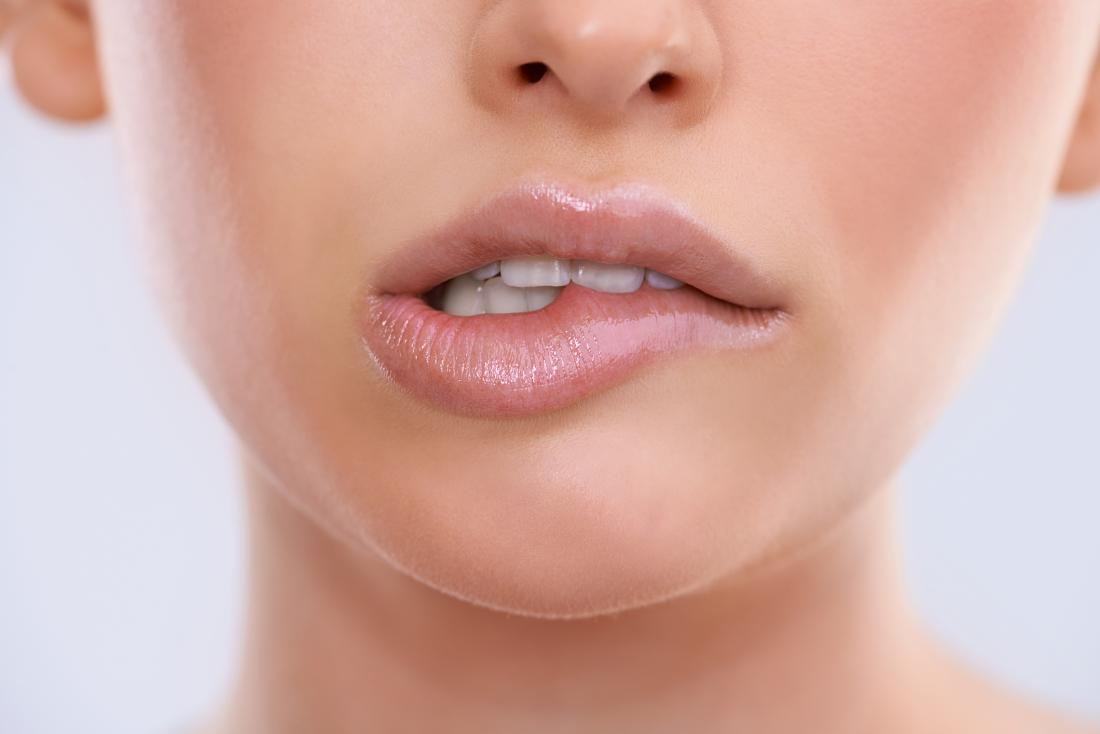Biting Lip: Causes, Consequences, and How to Stop
Biting your lip—it’s a common habit, often done unconsciously, and can range from a harmless quirk to a chronic issue with significant consequences. In this comprehensive guide, we’ll explore the world of lip biting, from its causes to its physical and psychological effects. We’ll also provide practical strategies to help you stop this habit and take control of your oral health.
Understanding Lip Biting
Before delving into the causes and solutions, it’s essential to understand what lip biting entails. Lip biting, as the name suggests, involves the act of forcefully clenching or chewing on your lips. It can occur during moments of stress, anxiety, deep concentration, or even absentmindedly. While occasional lip-biting is common, some individuals develop chronic lip-biting habits that demand attention.

biting lip
Physical and Psychological Effects
Chronic lip biting, if left unchecked, can have both physical and psychological consequences. It’s crucial to be aware of these effects, as they can significantly impact your well-being:
Lip Injuries:
One of the most immediate consequences of lip biting is injuries to the lips. This can lead to soreness, swelling, and even open sores that are prone to infection.
Infections:
Frequent lip biting can create opportunities for bacterial or fungal infections, as the broken skin provides an entry point for pathogens.
Increased Stress and Anxiety:
Paradoxically, lip biting, often a response to stress or anxiety, can exacerbate these emotions. The physical discomfort can amplify mental stress.
Impact on Oral Health:
Chronic lip biting may affect your overall oral health. It can cause damage to the teeth, gums, and the delicate tissues of the lips.
Strategies to Stop Lip Biting
Breaking the cycle of lip biting is a worthwhile endeavor for your oral and emotional well-being. Here are some effective strategies to help you stop this habit:
Identify Triggers:
Start by recognizing what situations or emotions trigger your lip-biting. Awareness is the first step towards change.
Stress Management:
Since stress is a common trigger, explore stress-reduction techniques such as deep breathing exercises, meditation, or yoga.
Oral Hygiene:
Maintain good oral hygiene to keep your lips healthy and free from irritation. Use lip balm to prevent dryness and peeling.
Replace the Habit:
Find a substitute for lip biting, such as chewing sugar-free gum or keeping a stress ball handy to redirect your impulses.
Seek Professional Help:
If lip biting persists and causes significant discomfort, consult a dental or mental health professional for guidance and support.
Medical Considerations
While many individuals can successfully manage and overcome lip biting on their own, there are instances where medical attention may be necessary. It’s essential to be aware of when to seek professional help:
Persistent Injuries:
If your lip-biting habit leads to persistent injuries, such as open sores or infections, consult a healthcare provider or dentist.
Chronic Lip Biting:
Chronic lip biting that significantly affects your oral health or overall well-being may require intervention from a dental or mental health professional.
Underlying Conditions:
Lip biting can sometimes be a symptom of underlying medical or psychological conditions. Seek a medical evaluation if needed.
FAQs about Biting Lip
Why do people bite their lips?
People often bite their lips due to stress, anxiety, nervousness, or even as a habitual behavior.
Is occasional lip-biting harmful?
Occasional lip biting usually doesn’t cause significant harm. It’s when it becomes chronic that it may lead to issues.
Can lip biting cause lip injuries?
Yes, frequent lip biting can result in lip injuries, including sores, swelling, and bleeding.
Is lip biting a sign of an underlying medical condition?
In some cases, lip biting can be a symptom of underlying conditions such as obsessive-compulsive disorder (OCD) or anxiety disorders.
How can I stop biting my lips when I’m stressed?
Managing stress through relaxation techniques, mindfulness, and seeking professional help can help you stop lip-biting triggered by stress.
Are there any home remedies for sore lips from lip biting?
Applying a soothing lip balm or aloe vera gel can help relieve soreness caused by lip biting.
Is there a connection between lip biting and dental problems?
Chronic lip biting can potentially lead to dental problems, including damage to the teeth and gums.
Can children outgrow a lip-biting habit?
Some children naturally outgrow the habit, while others may need guidance and support from parents and dental professionals.
When should I see a dentist or healthcare provider for lip biting?
If lip biting leads to persistent injuries, or infections, or affects your daily life, consult a dentist or healthcare provider.
Is there a support group for people trying to stop lip-biting?
Some online support groups and communities offer guidance and encouragement for individuals trying to break the habit of lip biting.
Conclusion
In conclusion, lip biting is a habit that affects many individuals, ranging from occasional biters to those with chronic issues. Understanding the causes, consequences, and effective strategies to stop lip biting is crucial for your oral health and overall well-being.




